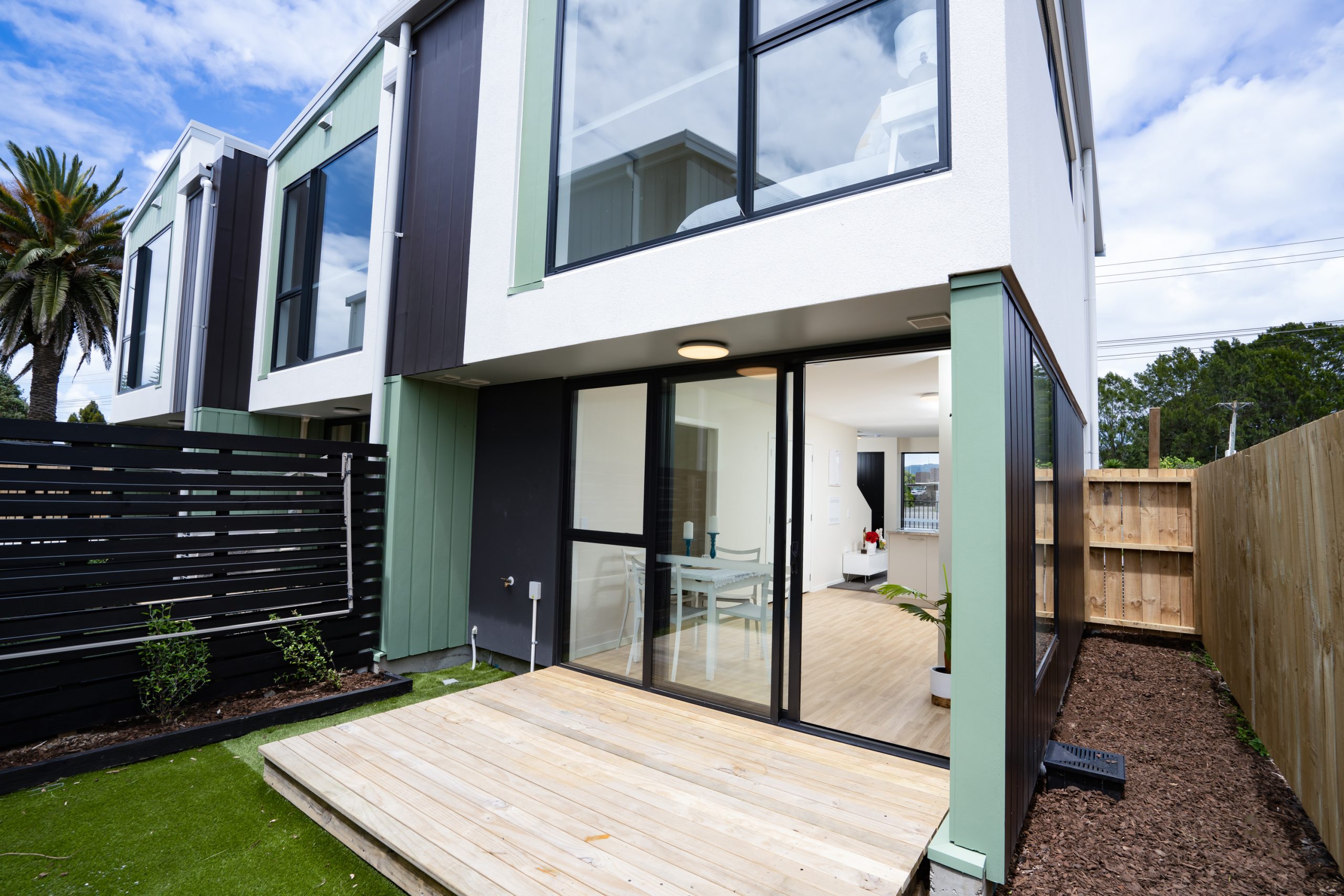
Townhouse Vs House: Which is the Better Investment?
Looking at two similar properties with vastly different price tags can make your head spin. You know property investment is the way forward, but the townhouse vs house decision feels overwhelming when the choice directly impacts your financial future.
Oaks Living has guided several investors through this situation, using our experience developing modern, investment-ready homes in Auckland’s top growth areas to show us which option consistently delivers the better results for investor goals. Let’s break down the key differences so you can make the right choice for your portfolio.
What is a Townhouse in NZ, and How Do They Differ from a Standalone House?
So, what is a townhouse in NZ? They’re multi-storey homes that share walls with neighbouring properties. Though connected to neighbours, they come with their own front door and private outdoor space. They typically have body corporate arrangements that handle shared areas and exterior maintenance for quarterly fees of around $3,000 – $6,000 annually.
On the other hand, standalone houses give you complete ownership of the property and land, with no shared walls or body corporate fees—but you’re responsible for all maintenance and decisions yourself. What is the main difference for investors in this house vs townhouse debate? Townhouses often come with 20-30% lower upfront costs, while standalone houses typically offer stronger long-term capital growth.
House Vs Townhouse: Investment Comparison
Purchase Price and Affordability
Are townhouses cheaper than houses? Generally, yes! Townhouses are usually a more affordable entry point into Auckland’s property market, often costing 20-30% less upfront than a similar standalone house in the same area. For example, where a three-bedroom house might cost $1.2 million, a comparable townhouse could be around $850,000 – $950,000.
The lower entry cost means a smaller deposit to get started. There’s a significant difference between trying to break into the market and expanding your portfolio without stretching your finances too thin.
Rental Income Potential
When it comes to weekly rent, standalone houses typically command higher rental rates due to their larger size and private sections. A three-bedroom house in Auckland may rent for $650-$800 per week, while a comparable townhouse could get $550-$700 weekly.
But don’t let the lower rental income fool you. Townhouses attract quality tenants like young professionals and small families looking for a modern, low-maintenance lifestyle; they can deliver better rental yields because of their lower purchase price. A $900,000 townhouse earning $600 weekly gives you an approximate 3.5% gross yield, while a $1.2 million house earning $750 a week only delivers about 3.3%.
Maintenance and Ongoing Care
When buying a townhouse vs a house, each comes with completely different maintenance responsibilities. With townhouses, your body corporate generally handles exterior maintenance, roofing, shared driveways, and common areas. While you must pay body corporate fees, you avoid unexpected major expenses like roof repairs or exterior painting.
Standalone homes put you in control. Every maintenance issue, from blocked gutters to fence repairs, comes out of your pocket. While there’s no ongoing body corporate fees, you need to budget for irregular, but potentially expensive, maintenance costs.
Key Investment Factors of Buying a Townhouse Vs a House
Capital Growth Potential
Standalone houses typically deliver stronger long-term capital growth due to the land component and scarcity value. However, townhouses offer solid appreciation potential with less volatility, making them ideal for steady wealth building. Auckland’s modern townhouse developments often outperform older standalone properties in desirable locations.
Tenant Appeal and Vacancy Rates
Townhouses appeal to young professionals and small families seeking modern, low-maintenance living. Standalone houses attract larger families seeking space, but can experience longer vacancy periods. In Auckland’s inner suburbs, townhouses typically have shorter vacancy periods due to strong demand from the growing professional demographic.
Management Complexity
The townhouse vs house decision significantly impacts how much time you’ll spend managing your investment. Townhouses are easier to manage since the body corporate handles exterior maintenance and building insurance. Standalone houses require full property management; however, you get complete control over decisions and improvements.
Which Property Type Suits Your Investment Strategy?
- New Investors: Townhouses are often the smarter starting point with lower entry costs and simplified management through a body corporate. You can focus on learning tenant relationships and cash flow without maintenance headaches while building your first investment foundation.
- Experienced Portfolio Builders: Seasoned investors can leverage both options strategically. Houses provide stronger capital growth and renovation potential, while townhouses offer steady cash flow and portfolio diversification, particularly when targeting professionals in inner-city areas.
- Location Considerations for Auckland: Location often trumps property type. When considering what a townhouse is in NZ and its performance in different areas, inner suburbs like Ponsonby or Grey Lynn see modern townhouses outperform older houses due to their lifestyle appeal. Growth areas like Hobsonville favour both types, but townhouses offer a better entry point for wealth-building.
Making the Right Choice for Your Portfolio
The right investment choice depends on your goals. While many investors ask, “Are townhouses cheaper than houses?”, the answer is yes—but both types offer distinct advantages. Townhouses offer lower entry costs and simplified management for new investors, while houses can deliver strong capital growth with more control.
Both can build wealth when chosen strategically. If you’re ready to explore your options, discover Oaks Living’s new build townhouses in Auckland properties.

